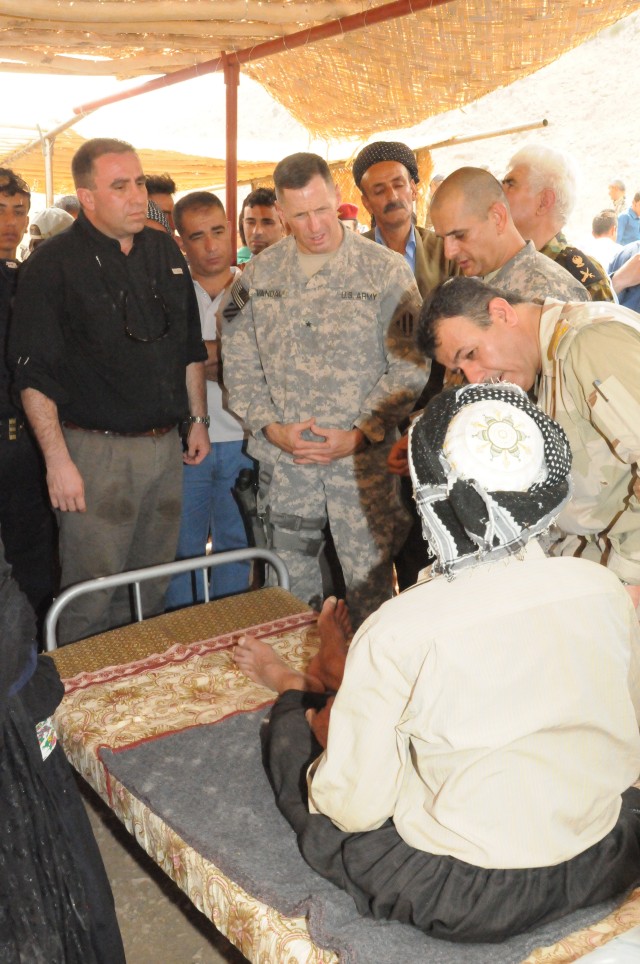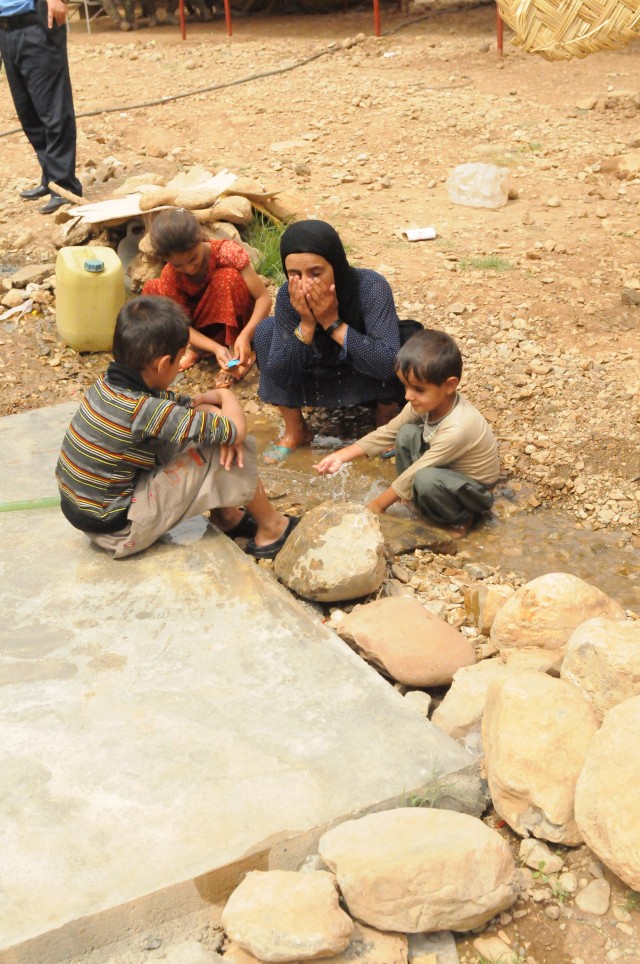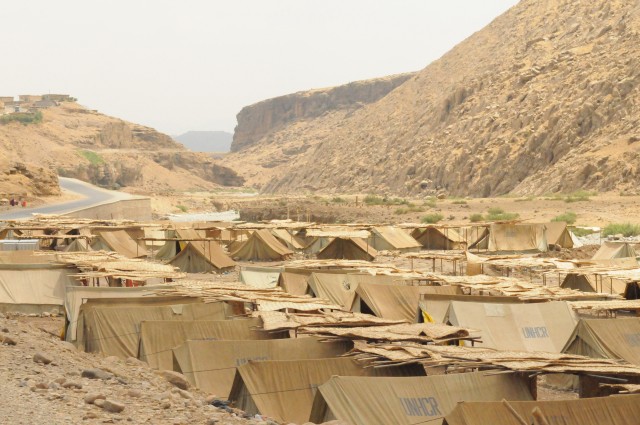CONTINGENCY OPERATING SITE Marez, Iraq - Task Force Marne Deputy Commanding General Support, Brig. Gen. Tom Vandal, has made several visits to internally displaced persons camps in Kurdistan and has met with government officials to assist the Families who reside in those camps.
Hundreds of Families along Iraq's borders have taken refuge in internally displaced persons camps throughout the past eight years of conflict. The Government of Iraq and the Kurdish Regional Government are looking for long-term solutions, but currently humanitarian support is being provided by non-military organizations and the KRG.
Camp Sangasar, in Sullymania province, is home to approximately 500 displaced families. Most of the individuals fled their Qandhil Mountain homes due to artillery fire. While their current camp is safe from artillery fire, there is another problem caused by the location of the village; it is located on a flood plain.
"Our engagement with KRG officials following the Sangasar visit was to have the KRG allocate space to move IDPs, which will fix the short-term problem," said Brig. Gen. Vandal.
For the camp's residents, returning to their homes in the near future isn't a safe option. It is believed by government officials and Brig. Gen. Vandal that the artillery fire was an attempt to clear the village of civilians and that anyone who remains in the area may be labeled as terrorist suspects.
While Families at Camp Sangasar wait until they can make a safe return to their homes, the KRG has donated money and is setting aside land for farming.
Several IDP camps in the Dahuk province are in need of different assistance from their government. The people said their main needs are central services, such as water and electricity. Many Families also need help maintaining the condition of their homes. Old Iraqi Army barracks have been turned into housing. Some are falling apart, and others are too small for the numerous families they house.
Like their Camp Sangasar counterparts, the residents of Dahuk province IDP camps feel that they cannot safely return home. According to the Dahuk Director of Displaced Persons, some of the families in these camps were forced there by Saddam Hussein's Regime. Many fled their home city of Mosul due to terrorist attacks.
"These IDPs only remember the conditions when they departed four or five years ago from Ninewa province when there were around 300 to 400 violent attacks per month. Now, attacks are down to 10 to 15 per week," said Brig. Gen. Vandal.
While security has improved in Mosul, the KRG and GoI are looking for permanent homes. The U.S. Army is assisting them along the way.
"The KRG is more than capable of providing for the humanitarian needs of these people. What we can do is engage senior leadership within the KRG to ensure that they are focused on long-term solutions," said Brig. Gen. Vandal.






Social Sharing